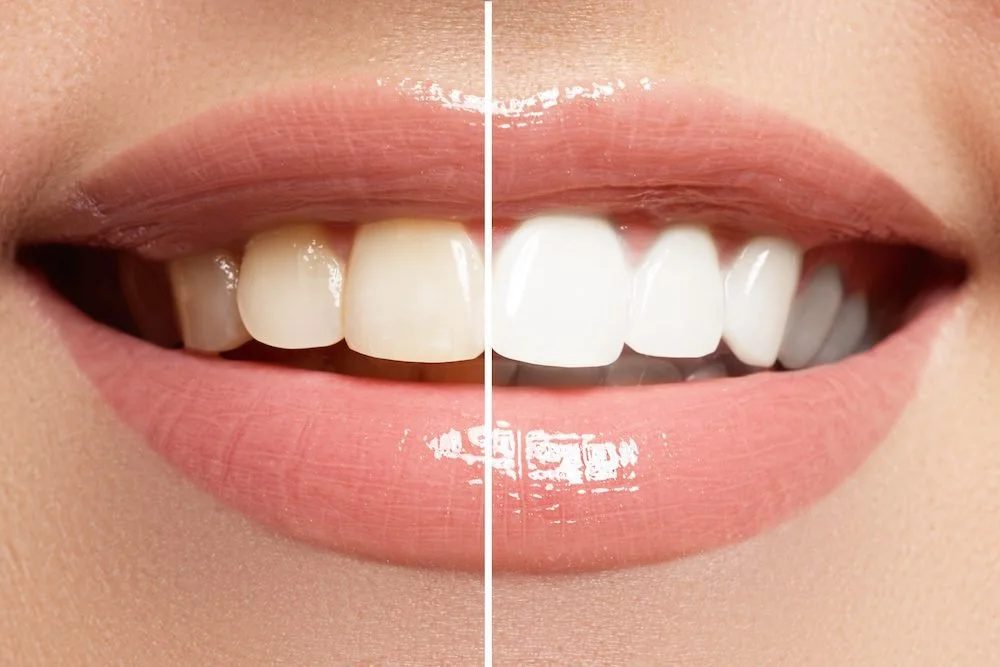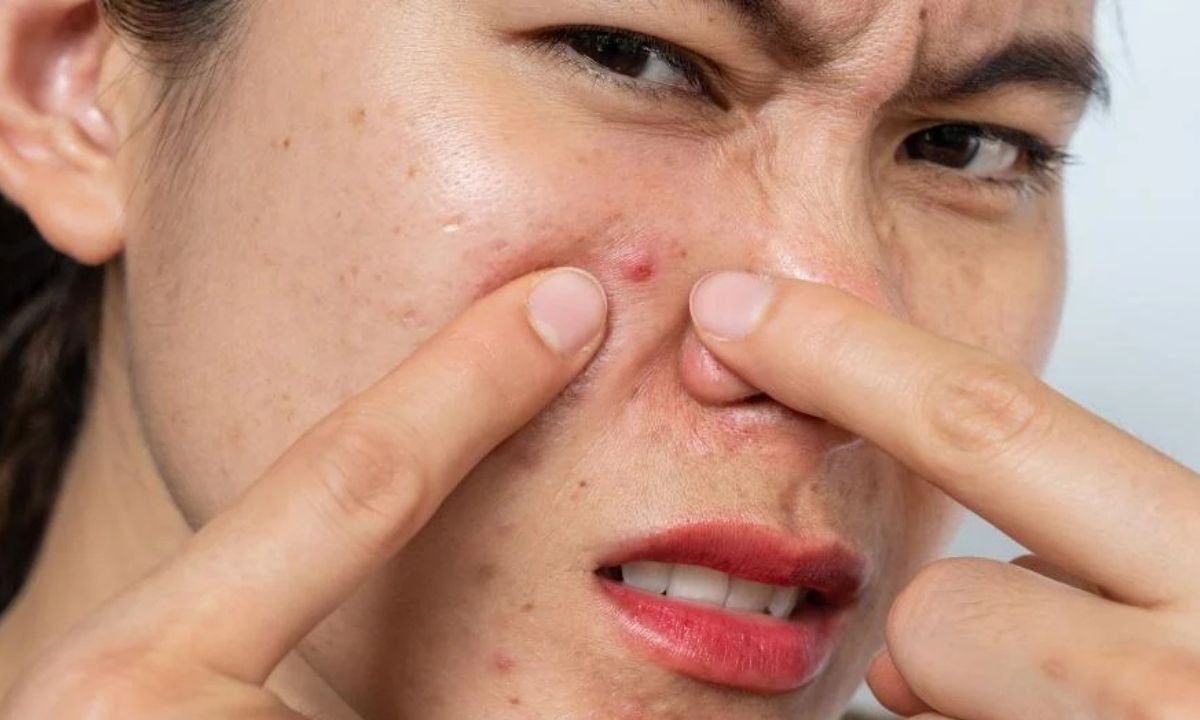Teeth whitening is a dental procedure that aims to eliminate stains and discoloration on the teeth, leading to a more radiant and appealing smile. The procedure includes the utilization of whitening substances like hydrogen peroxide or carbamide peroxide, which enter the enamel and disintegrate stains into smaller, diluted molecules.
Moreover, teeth whitening is one of the most requested cosmetic procedures in dental offices, as it provides quick and noticeable results. While the enamel is the hard outer surface of the teeth stained by various foods, drinks, and lifestyle habits, the underlying dentin layer can also become discolored over time. Whitening treatments target surface stains and deeper discoloration, resulting in a comprehensive improvement in the teeth’ appearance.
Methods of Teeth Whitening
For those seeking professional services, consider exploring options like Parkesburg teeth whitening to achieve optimal results. There are several methods of teeth whitening, each with its pros and cons:
- In-Office Whitening:A dentist performs this technique by placing a strong bleaching gel on the teeth. The process often includes using a particular light or laser to enhance the whitening effects. In-office whitening is a common option for people looking for quick results, as it usually delivers significant improvement after just one session.
- At-Home Whitening Kits:Available over-the-counter or through a dentist, these kits include custom-made or one-size-fits-all trays and whitening gels. After the gel is put on the trays, they are worn on the teeth for a set amount of time, typically between 30 minutes to an hour each day. At-home kits offer convenience and can produce noticeable results over a few weeks of consistent use.
- Whitening Toothpaste:Containing mild abrasives and low concentrations of bleaching agents, whitening toothpaste is designed to help remove surface stains from daily activities like drinking coffee or tea. While it doesn’t provide the dramatic results of professional treatments, it can help maintain a bright smile and prevent new stains from forming.
Benefits of Professional Whitening
Professional teeth whitening offers several advantages over at-home treatments:
- Effectiveness:Professional treatments use more vital bleaching agents, resulting in more noticeable and long-lasting results than over-the-counter products. The high concentration of active ingredients in professional-grade whitening solutions allows for deeper penetration and more effective removal of stains and discoloration.
- Safety:Dentists monitor the procedure, reducing the risk of gum irritation and tooth sensitivity. They can also apply protective measures, such as a barrier to shield the gums from the bleaching agent, ensuring a more comfortable experience. Moreover, a dentist has the ability to customize the treatment according to your individual requirements by modifying the intensity and duration of application to reduce the risk of side effects.
- Customization:Treatments are tailored to your specific needs and the current shade of your teeth. Dentists can create custom-fit trays that ensure even distribution of the whitening gel and optimal contact with the teeth. This personalized approach helps achieve uniform results and addresses individual concerns, such as targeting particularly stubborn stains.
Professional teeth whitening provides a safer, more effective, and customizable solution for those looking to enhance their smile. The direction and skill of a dentist guarantee that the procedure is done accurately and quickly, maximizing advantages and minimizing risks. Learn more about the different teeth whitening methods to determine which is best for you.
Possible Side Effects
While teeth whitening is generally safe, some individuals may experience side effects such as:
- Tooth Sensitivity: Heightened sensitivity to high and low temperatures is a typical occurrence following whitening procedures. This is usually temporary and subsides within a few days to a week. Dentists may recommend using toothpaste designed for sensitive teeth to help alleviate discomfort.
- Gum Irritation: Whitening agents can cause temporary discomfort and irritation if they contact your gums. This is more likely to occur with over-the-counter products that need more precision of custom-fit trays or professional application techniques. Dentists can apply protective barriers and ensure proper application to minimize gum irritation.
To minimize these risks, it’s essential to consult your dentist before undergoing any whitening treatment. Your dentist can help you choose the most suitable method and guide you on managing any potential side effects effectively.
Aftercare Tips
Maintaining your newly whitened smile requires proper aftercare:
- Stay away from foods and drinks that can cause stains, like coffee, tea, red wine, and dark fruits. If you ingest these items, it’s recommended to use a straw to reduce contact with your teeth and then rinse your mouth with water.
- Maintain good dental health by brushing your teeth two times a day and flossing every day. Consistent brushing and flossing are effective in eliminating plaque and avoiding the development of new stains. Using an electric toothbrush can enhance cleaning efficacy and improve overall oral health.
- Use a whitening toothpaste to help maintain your results. Whitening toothpaste contains mild abrasive agents that help polish and prevent surface stains. However, using such toothpaste sparingly is essential to avoid excessive abrasion.
- Make sure to schedule routine dental cleanings to maintain the health of your teeth. Regular cleanings by professionals can eliminate plaque buildup and surface stains that may be overlooked during daily brushing, thus contributing to the upkeep of both your oral health and smile.
Adhering to these aftercare tips can prolong the results of your teeth whitening treatment, ensuring your smile remains bright and beautiful for an extended period.
Common Myths About Teeth Whitening
There are many misconceptions about teeth whitening that need debunking:
- Myth:Whitening weakens teeth. Fact: When performed correctly, whitening procedures do not harm the teeth. The bleaching agents used in professional and over-the-counter products are designed to break down stains without compromising the tooth structure.
- Myth:Whitening results last forever. Fact: Results are long-lasting but not permanent; maintenance is required. Factors such as diet, oral hygiene, and lifestyle habits can influence the longevity of whitening results. Periodic touch-ups help maintain the brightness of your smile.
- Myth:Non-prescription products have the same level of effectiveness as treatments done by professionals. Fact: Professional whitening is generally more effective due to more vital bleaching agents. Over-the-counter products can help maintain results but may provide a different level of whitening than a professionally administered treatment.
Having knowledge about teeth whitening can assist in making educated choices and establishing achievable goals for your treatment results.
Frequently Asked Questions
How Long Do Whitening Results Last?
The outcomes may endure from several months to a couple of years, based on your dietary choices and oral routines. Taking good care of your teeth and steering clear of foods and drinks that can stain them will help to extend the results of your whitening procedure. Regular touch-ups, either with at-home kits or periodic professional therapies, can help sustain the brightness of your teeth.
Is Teeth Whitening Safe?
Teeth whitening is safe when done by a skilled dentist or when using at-home kits as directed. Choosing reputable products and consulting a dental professional is essential to ensure the treatment suits your needs and oral health condition.
Can All Teeth Be Whitened?
Whitening treatments work best on real teeth. It may not work on restorations like crowns, fillings, or veneers. If you have dental restorations, discussing whitening options with your dentist is essential, as these materials do not respond to bleaching agents and may require alternative cosmetic solutions.















